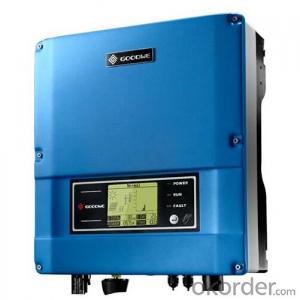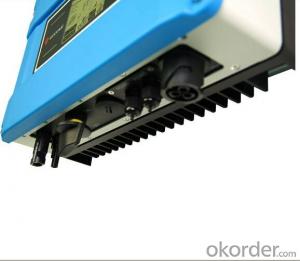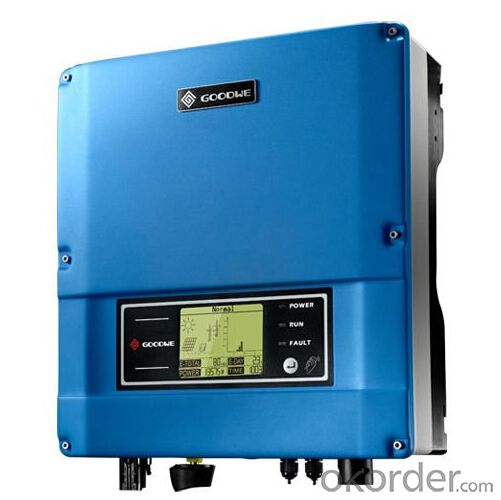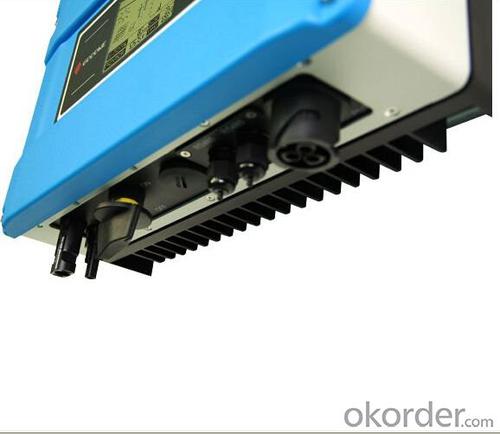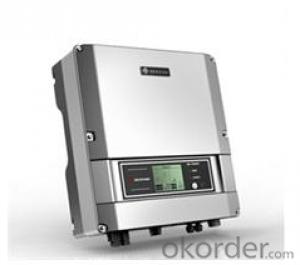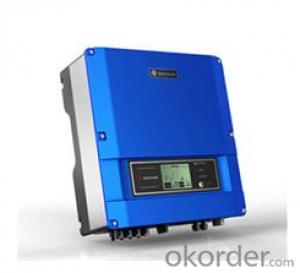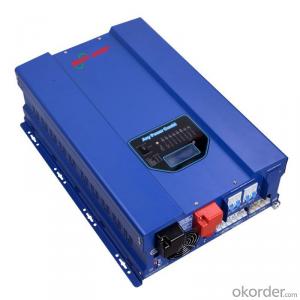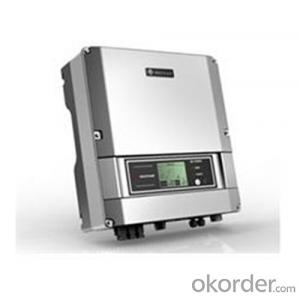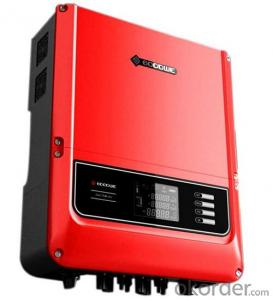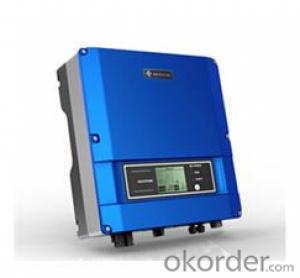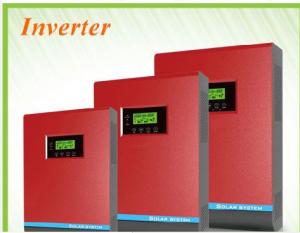Bluesun Solar Inverter GW1500-SS On Grid Solar Inverter
OKorder Service Pledge
Quality Product, Order Online Tracking, Timely Delivery
OKorder Financial Service
Credit Rating, Credit Services, Credit Purchasing
You Might Also Like
GW1500-SS photovoltaic inverter
is suitable for home rooftop photovoltaic system, designed under modern industrial concept.
There are three colors for option with fashionable appearance.
This model is applicable for the photovoltaic system with open-circuit voltage less than 450V,
maximum output power less than 1800W. Its maximum conversion efficiency can reach 97%.
First-class harmonic control ability, small size and light weight make it hold a safe lead among similar products.
Datasheet
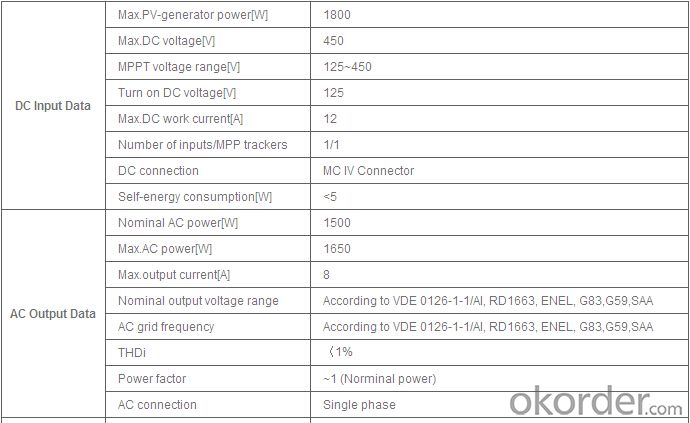
- Q: Can a solar inverter be used in systems with different module capacities?
- Yes, a solar inverter can be used in systems with different module capacities. Solar inverters are designed to convert the DC power generated by solar panels into AC power for use in the electrical grid or for consumption. They are typically compatible with a wide range of module capacities and can accommodate various configurations of solar panels. However, it is important to ensure that the solar inverter's specifications and capacity match the overall system requirements to ensure optimal performance and efficiency.
- Q: How does a solar inverter handle variations in battery charge levels?
- A solar inverter manages variations in battery charge levels by monitoring the voltage and state of charge of the batteries. It adjusts the flow of electricity from the solar panels to the batteries accordingly, ensuring that the batteries are charged optimally without overcharging or undercharging. This helps maintain a stable and efficient energy storage system.
- Q: What is the role of a power limiter in a solar inverter system?
- The role of a power limiter in a solar inverter system is to regulate and control the amount of power being fed into the grid. It ensures that the solar system does not exceed the maximum allowable power limit set by the utility company. This helps to maintain a stable and reliable power supply, preventing any potential damage to the grid infrastructure and ensuring compliance with grid regulations.
- Q: How does the efficiency of a solar inverter affect the overall system performance?
- The efficiency of a solar inverter plays a crucial role in determining the overall performance of a solar system. A higher efficiency inverter converts a greater percentage of the energy generated by the solar panels into usable electricity. This means that less energy is lost as heat, resulting in more electricity being available for consumption. A more efficient inverter translates into increased energy production, reduced reliance on grid power, and ultimately, higher cost savings. Additionally, a highly efficient inverter enhances the stability and reliability of the system, ensuring optimal performance and longevity.
- Q: How does a solar inverter synchronize with the grid frequency?
- A solar inverter synchronizes with the grid frequency by continuously monitoring the frequency of the electricity supplied by the grid. It adjusts its own output frequency to match the grid frequency, ensuring that the electricity it generates is synchronized with the grid. This synchronization allows the solar inverter to seamlessly inject power into the grid and maintain a stable and reliable electrical supply.
- Q: What is the maximum input voltage for a solar inverter?
- The maximum input voltage for a solar inverter typically depends on the specific model and manufacturer. However, in general, solar inverters can handle input voltages ranging from 200 to 1000 volts, with some high-capacity inverters even accommodating higher voltages. It is essential to consult the manufacturer's specifications or user manual to determine the exact maximum input voltage for a specific solar inverter.
- Q: How does a solar inverter handle different temperature conditions?
- A solar inverter is designed to handle different temperature conditions by employing various thermal management techniques. It typically has built-in cooling systems such as fans or heat sinks to dissipate excess heat. Additionally, advanced inverters may employ temperature sensors to monitor the internal temperature and adjust their operations accordingly. These temperature compensation features allow the inverter to maintain optimal performance and efficiency across a wide range of temperature conditions.
- Q: What is the role of a solar inverter in a microgrid system?
- The role of a solar inverter in a microgrid system is to convert the direct current (DC) electricity generated by solar panels into alternating current (AC) electricity that can be used to power the electrical loads in the microgrid. It also helps to manage the flow of electricity between the solar panels, battery storage, and the grid, ensuring efficient utilization and stability of the microgrid system.
- Q: Can a solar inverter be connected to a home automation system?
- Yes, a solar inverter can be connected to a home automation system. By integrating the solar inverter with the home automation system, homeowners can monitor and control their solar power production, track energy usage, and automate various energy-saving functions such as adjusting thermostat settings, turning off appliances, or scheduling energy-intensive tasks during peak solar production hours. This integration enhances the overall efficiency and convenience of managing solar energy within a smart home environment.
- Q: Can a solar inverter be used for both residential and commercial applications?
- Yes, a solar inverter can be used for both residential and commercial applications. Solar inverters are designed to convert the DC electricity generated by solar panels into AC electricity that can be used to power homes or businesses. They can be scaled to accommodate the specific energy needs of residential or commercial properties, making them suitable for various applications.
Send your message to us
Bluesun Solar Inverter GW1500-SS On Grid Solar Inverter
OKorder Service Pledge
Quality Product, Order Online Tracking, Timely Delivery
OKorder Financial Service
Credit Rating, Credit Services, Credit Purchasing
Similar products
Hot products
Hot Searches
Related keywords
